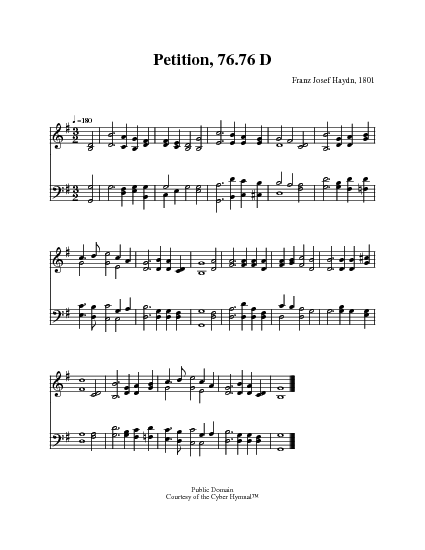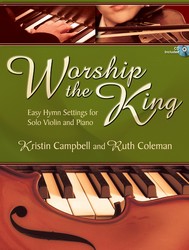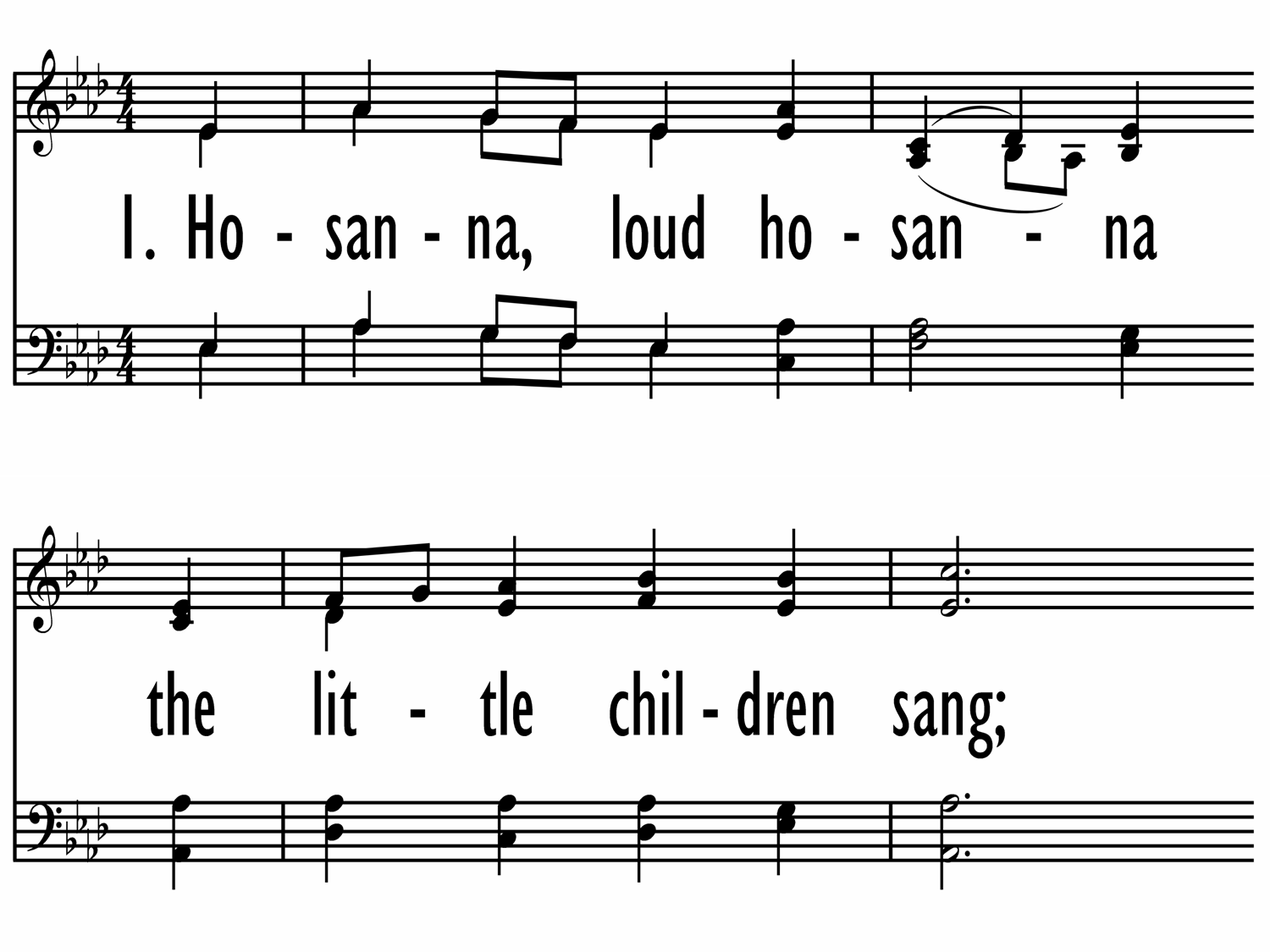- |
User Links
Sometimes a light surprises

Sometimes a light surprises
Author: William Cowper (1779)Published in 407 hymnals
Printable scores: PDF, MusicXMLAudio files: MIDI, Recording
Representative Text
1. Sometimes a light surprises
Believers while they sing;
Is is the Lord who rises
With healing in his wings;
When comforts are declining,
He grants the soul again
A season of clear shining
To cheer it after rain.
2. In holy contemplation,
We sweetly then pursue
The theme of God's salvation,
And find it ever new;
Set free from present sorrow,
We cheerfully can say,
E'en let th'unknown to tomorrow
Bring with it what it may.
3. It can bring with it nothing
But he will bear us through;
Who gives the lilies clothing
Will clothe his people, too;
Beneath the spreading heavens,
No creature is not fed,
And he who feeds the ravens
Will give his children bread.
4. The vine, nor fig tree neither,
Their wonted fruit should bear,
Tho' all the fields should wither,
Nor flocks, nor herds be there;
Yet God the same abiding,
His praise shall tune my voice,
For while in him confiding,
I cannot but rejoice.
Source: Hymns and Devotions for Daily Worship #352
Author: William Cowper
 William Cowper (pronounced "Cooper"; b. Berkampstead, Hertfordshire, England, 1731; d. East Dereham, Norfolk, England, 1800) is regarded as one of the best early Romantic poets. To biographers he is also known as "mad Cowper." His literary talents produced some of the finest English hymn texts, but his chronic depression accounts for the somber tone of many of those texts. Educated to become an attorney, Cowper was called to the bar in 1754 but never practiced law. In 1763 he had the opportunity to become a clerk for the House of Lords, but the dread of the required public examination triggered his tendency to depression, and he attempted suicide. His subsequent hospitalization and friendship with Morley and Mary Unwin provided emotional st… Go to person page >
William Cowper (pronounced "Cooper"; b. Berkampstead, Hertfordshire, England, 1731; d. East Dereham, Norfolk, England, 1800) is regarded as one of the best early Romantic poets. To biographers he is also known as "mad Cowper." His literary talents produced some of the finest English hymn texts, but his chronic depression accounts for the somber tone of many of those texts. Educated to become an attorney, Cowper was called to the bar in 1754 but never practiced law. In 1763 he had the opportunity to become a clerk for the House of Lords, but the dread of the required public examination triggered his tendency to depression, and he attempted suicide. His subsequent hospitalization and friendship with Morley and Mary Unwin provided emotional st… Go to person page >Text Information
| First Line: | Sometimes a light surprises |
| Author: | William Cowper (1779) |
| Meter: | 7.6.7.6 |
| Language: | English |
| Copyright: | Public Domain |
Notes
Sometimes a light surprises. W. Cowper. [Joy and Peace in Believing.] Published in the Olney Hymns, 1779, Book iii., No. 48, in 4 stanzas of 8 lines, and headed "Joy and Peace in Believing." It is in O. XJ. in its full and in an abbreviated form. There are also two centos therefrom in modern collections:—(1) "In holy contemplation, we sweetly then pursue," in the American Sabbath Hymn Book, 1858, and later editions; and (2) "Thy children, Lord, lack nothing," in Snepp's Songs of Grace & Glory, 1870.
-- John Julian, Dictionary of Hymnology (1907)
Access an additional article on the Canterbury Dictionary of Hymnology:


 My Starred Hymns
My Starred Hymns






